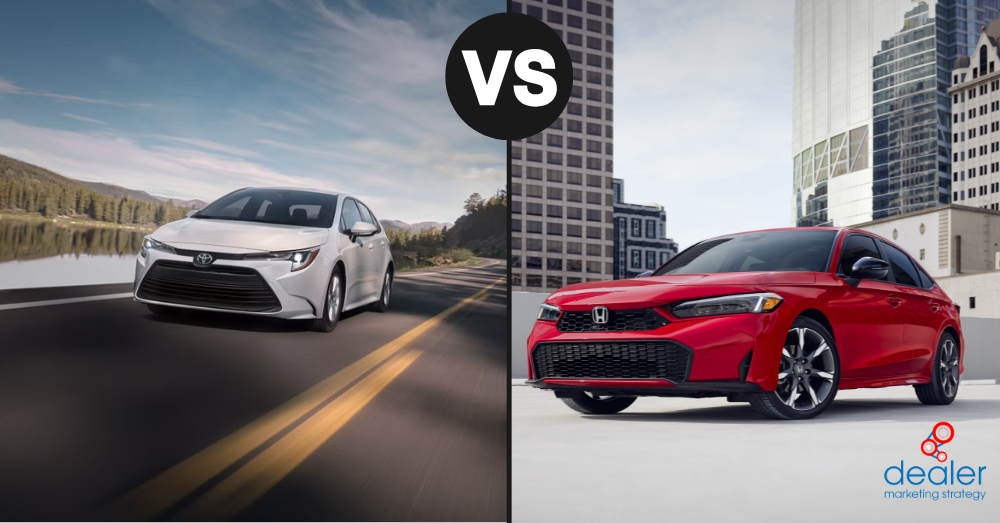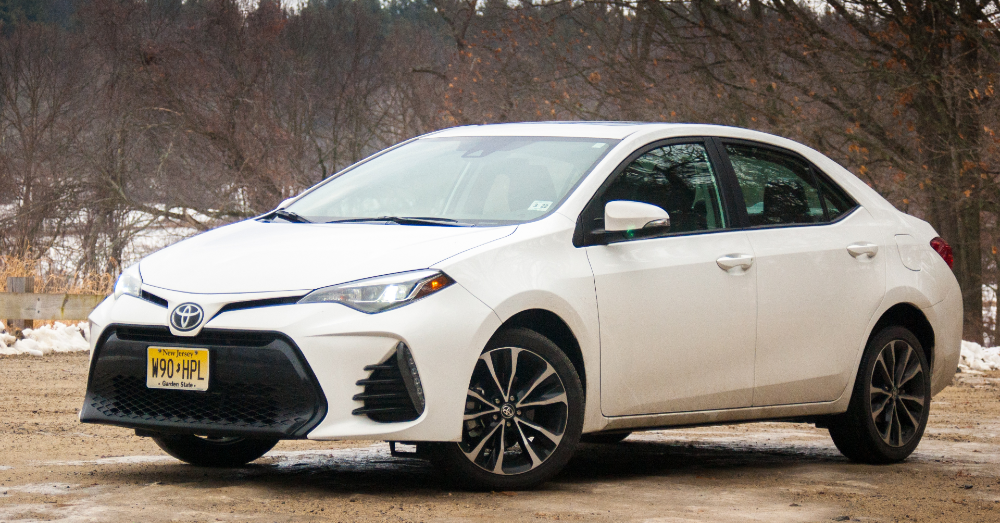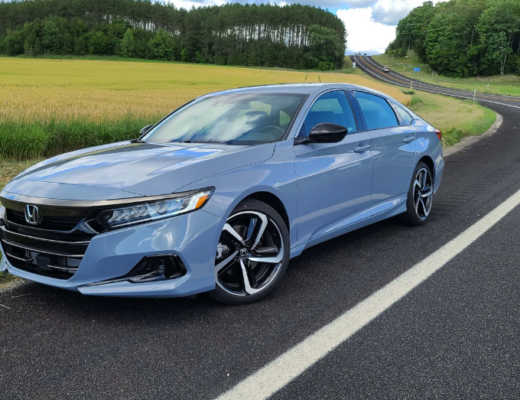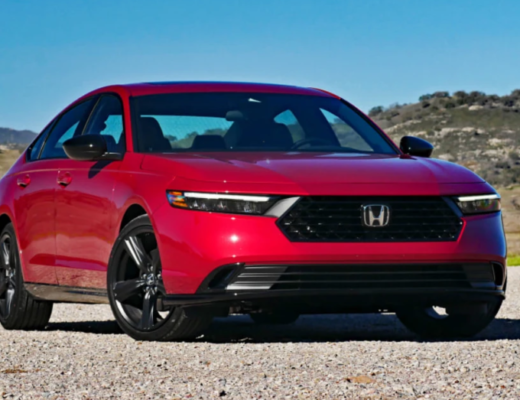Walk into any Honda or Toyota showroom and you’ll face the same question thousands of buyers ask every month: Corolla or Civic? Both 2026 models bring serious updates, but they’re playing completely different games. Toyota doubles down on what made them famous, rock-solid reliability and amazing gas mileage that can hit 50 combined MPG. Honda? They’re swinging for the fences with 200 horsepower in their hybrid while still delivering killer fuel economy. Here’s how these longtime rivals really stack up.
- Toyota’s betting everything on efficiency – their hybrid hits 50 combined MPG with proven tech that just works
- Honda wants your heart AND your wallet – 200 hybrid horsepower with 49 combined MPG sounds too good to be true
- Your budget gets more love from Toyota – base Corolla starts $2,000 less than the cheapest Civic
Honda Brings the Heat
Here’s the thing about the 2026 Civic Hybrid, Honda didn’t just add batteries and call it a day. They built a 200-horsepower monster that makes most “sporty” cars look slow. That power comes from pairing a 2.0-liter engine with two electric motors, and the setup delivers 232 lb-ft of torque right when you need it.
The numbers tell the whole story. This Civic hits 60 mph in 6.2 seconds, which is genuinely quick for any car. That acceleration becomes your best friend when you’re merging onto a busy freeway or need to pass that slow truck ahead of you.
Toyota’s approach with the toyota corolla is totally different. Their hybrid uses a smaller 1.8-liter engine with electric motors for 138 horsepower total. It gets the job done for daily driving, but you’ll wait 10.3 seconds to reach 60 mph. That’s nearly four seconds slower than Honda, and trust me, you feel every one of those seconds.
The MPG Numbers Game Gets Interesting
Toyota wins the pure efficiency contest, but Honda gets surprisingly close. The 2026 Corolla Hybrid delivers up to 53 city/46 highway/50 combined MPG with front-wheel drive. Go with all-wheel drive and those numbers drop to 51/44/48 combined.
Honda’s Civic Hybrid manages 50 city/47 highway/49 combined MPG in sedan form. The hatchback version gets 50/45 MPG. What blows my mind is how Honda gets within one MPG of Toyota while packing 62 more horsepower under the hood.
Skip the hybrid and both cars still deliver solid economy. The regular 2026 Corolla gets 32 city/41 highway/35 combined MPG. Honda’s base Civic returns basically the same at 32 city/42 highway/36 combined.
Tech Wars: Safety vs Performance Features
Toyota loads every 2026 Corolla with their Safety Sense 3.0 package. You get collision prevention with pedestrian detection, radar cruise control that works at any speed, lane departure warnings with steering help, and something called proactive driving assist that helps you avoid trouble. Every Corolla also gets a digital gauge cluster, either 7 inches on base models or 12.3 inches on fancier trims.
Honda takes a different route with the Civic. Their top Sport Touring Hybrid gets Google built right into the dash. That means Google Maps, Google Assistant, and Google Play work directly through your car without needing your phone. The premium Civic also includes a 12-speaker Bose sound system and wireless phone charging.
Both cars handle Apple CarPlay and Android Auto, but Toyota includes wireless connectivity across the board while Honda saves it for their top trim.
Room to Stretch
Honda wins the space battle with 99 cubic feet for passengers and 14.8 cubic feet of trunk room in the sedan. Back seat passengers get 37.4 inches of legroom, which actually fits real adults comfortably on road trips.
Toyota’s Corolla offers decent space but can’t match Honda’s roominess. You’ll notice the difference if you’re tall or spend lots of time in the back seat.
Both interiors look good for the money, though Honda’s cabin feels a bit more upscale with its metal mesh dashboard trim and cleaner overall design.
Your Wallet Will Thank Toyota
Here’s where Toyota lands a serious blow. The 2026 Corolla starts at just $22,725, beating the base Civic by almost $2,000. Even the Corolla Hybrid LE begins at $24,575, which still costs less than Honda’s cheapest Civic at $24,595.
The price gap gets bigger when you compare hybrids. Honda’s Civic Sport Hybrid starts at $29,295, while the Corolla Hybrid costs $4,720 less. Want Honda’s loaded Sport Touring Hybrid? You’ll pay $32,295 compared to Toyota’s more reasonable pricing across their lineup.
For buyers watching every dollar, that price difference could seal the deal.
Who Lasts Longer?
Both brands built their reputations on cars that run forever, but they got there different ways. Toyota has decades of hybrid experience with millions of Prius and Corolla hybrids proving the technology works. The new Corolla Hybrid uses Toyota’s fifth-generation system that’s been refined over many years.
Honda brought back the Civic Hybrid in 2025 after taking a break, using updated tech and lessons from their Accord and CR-V hybrids. While the system is newer to Civic, the basic technology has proven reliable in other Honda models.
Both brands typically hold their value well, with early data showing the Civic Hybrid doing particularly well at resale time.
Pick Your Poison
These cars solve completely different problems really well. The 2026 Toyota Corolla makes perfect sense if you want maximum fuel efficiency, bulletproof reliability, and the lowest sticker price. It’s the smart pick for daily commuters who want to spend less money both upfront and at the gas pump.
The 2026 Honda Civic appeals to drivers who refuse to give up fun even in an economy car. The hybrid’s impressive performance combined with nearly identical fuel economy to Toyota makes it the enthusiast’s choice.
Your decision really comes down to priorities. Want the absolute lowest cost of ownership and best efficiency? Toyota’s your answer. Want driving excitement with your efficiency? Honda delivers that exact combination.
Both represent smart choices in today’s compact car world. You can’t really lose with either option, but the differences are big enough that most people will have a clear favorite after driving both.
Test Drive Both Before You Buy
Before you sign anything, drive both cars in your normal conditions. Pay attention to how the hybrids behave in stop-and-go traffic and when merging onto busy roads. Think about whether you’ll actually use Honda’s extra performance or if Toyota’s fuel savings matter more.
Consider your daily driving too. Spend most of your time in city traffic? Toyota’s better city MPG might win you over. Frequently merge onto busy highways or enjoy weekend drives? Honda’s performance advantage becomes worth paying for.
Either choice represents a smart buy in today’s market. Both deliver the efficiency modern drivers want while keeping the reliability and value these names are famous for. The question isn’t whether you’ll get a good car, it’s which good car matches what you actually need.




